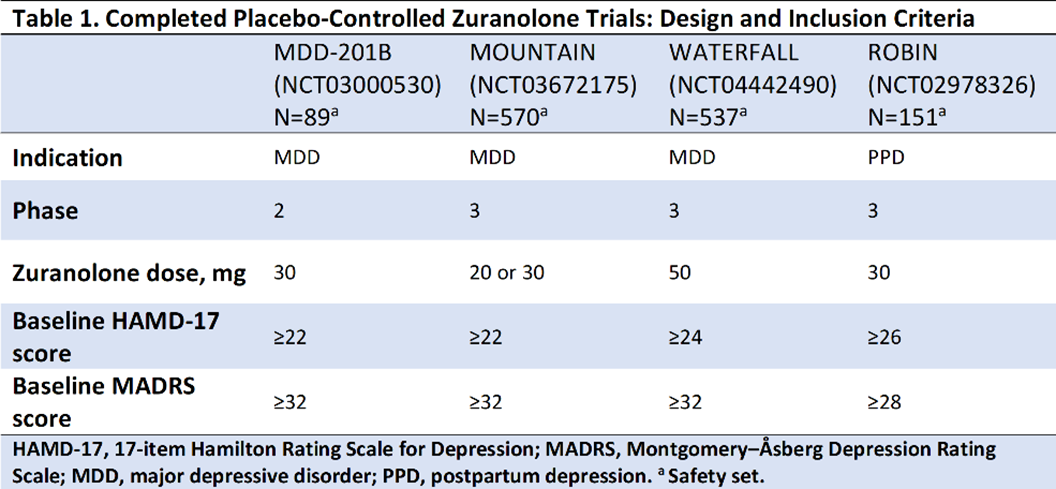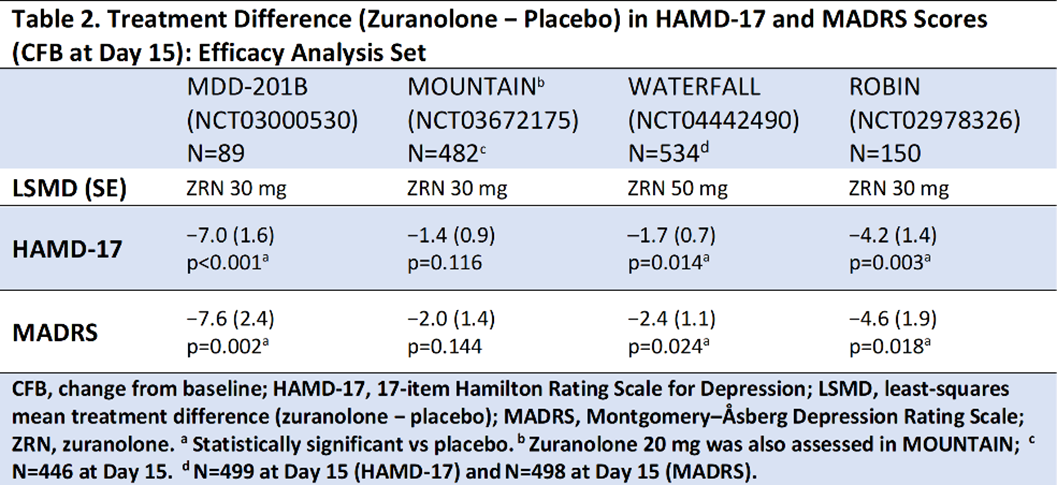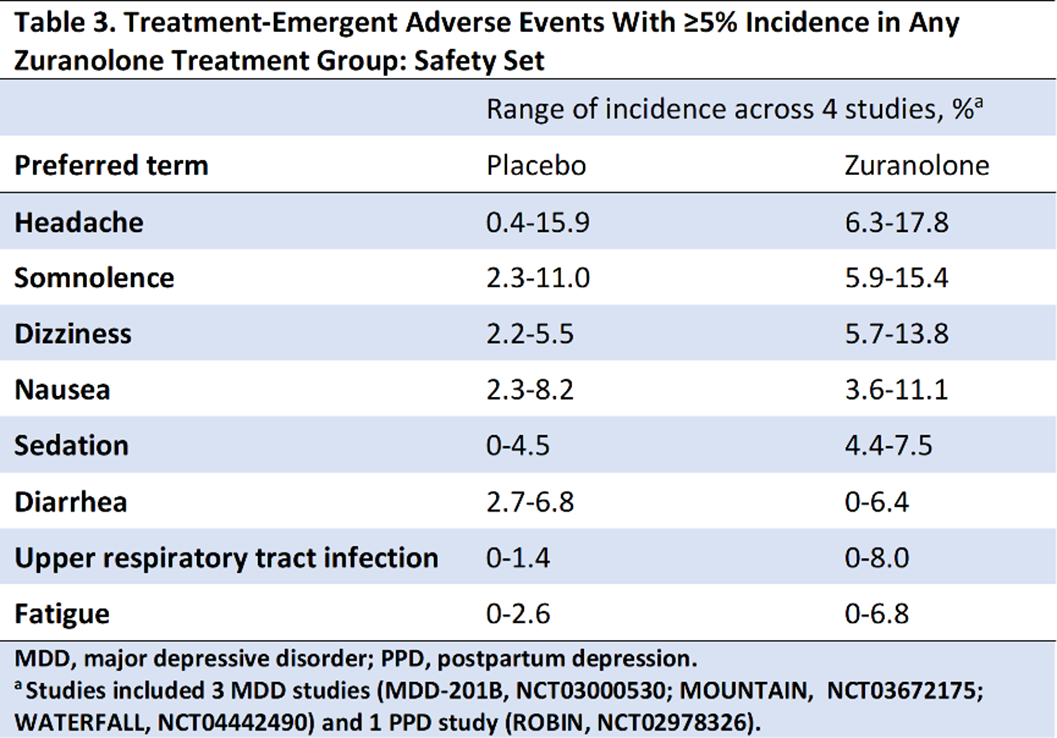European Psychiatry ( IF 7.2 ) Pub Date : 2022-09-01 , DOI: 10.1192/j.eurpsy.2022.282 A. Clayton , A.J. Cutler , K.M. Deligiannidis , R. Lasser , A.J. Sankoh , J. Doherty , M. Kotecha
在重度抑郁症 (MDD) 和产后抑郁症 (PPD) 中都非常需要能够快速起效而不需要长期使用的抗抑郁药。Zuranolone 是一种研究性、口服、神经活性类固醇和 GABA A受体阳性变构调节剂,正在临床开发中,作为 MDD 和 PPD 的 2 周治疗过程。
目标在 2 期和 3 期试验中展示 zuranolone 与安慰剂的疗效和安全性。
方法在提出的研究(表 1)中,抑郁症状的改善通过最小二乘均值 (LSM) 评估,使用混合效应模型重复测量第 15 天的 17 项汉密尔顿评分中相对于基线的变化 (CFB)抑郁症总分(HAMD-17;所有试验的主要终点)和蒙哥马利-埃斯伯格抑郁评定量表(MADRS;次要终点)在每天一次 zuranolone 的 14 天疗程后进行。

与安慰剂相比,zuranolone 治疗可快速改善临床试验中的抑郁症状,在 4 项试验中的 3 项中,HAMD-17 和第 15 天的 MADRS 评分有显着改善(CFB 中的 LSM 治疗差异 [SE])(表 2) . 常见的治疗中出现的不良事件(在 zuranolone 治疗组中≥5%)是头痛、嗜睡、头晕、恶心、镇静、腹泻、上呼吸道感染和疲劳(表 3)。没有观察到意识丧失或过度镇静的发生。


在 zuranolone 临床试验计划中已完成的研究中,接受 zuranolone 的患者在 2 周的疗程后持续经历抑郁症状的改善。用 zuranolone 治疗通常具有良好的耐受性,具有一致的安全性和耐受性。
披露MDD-201B、MOUNTAIN 和 ROBIN 研究由 Sage Therapeutics, Inc 赞助;WATERFALL 研究由 Sage Therapeutics, Inc 和 Biogen 赞助。医学写作和编辑支持由 MediTech Media, Ltd 提供,并由 Biogen 资助。

"点击查看英文标题和摘要"





















































 京公网安备 11010802027423号
京公网安备 11010802027423号